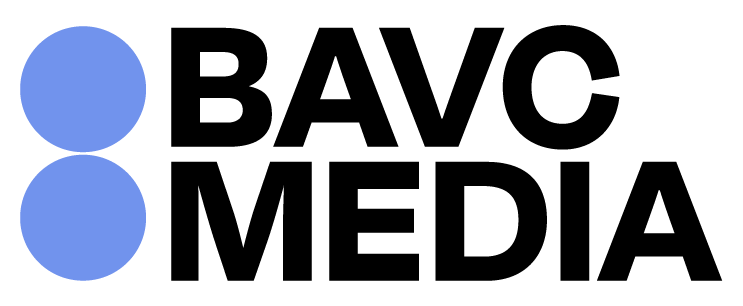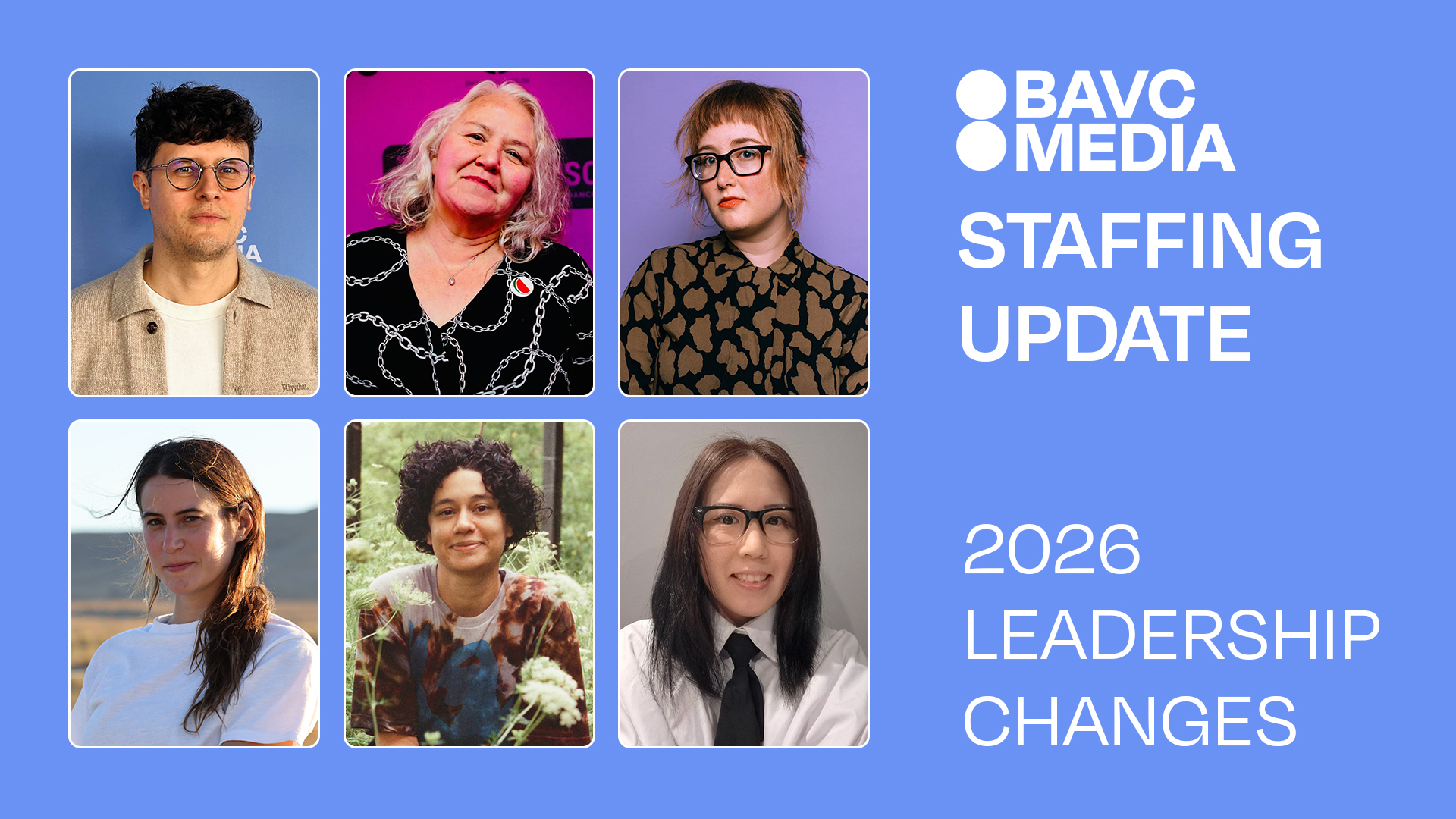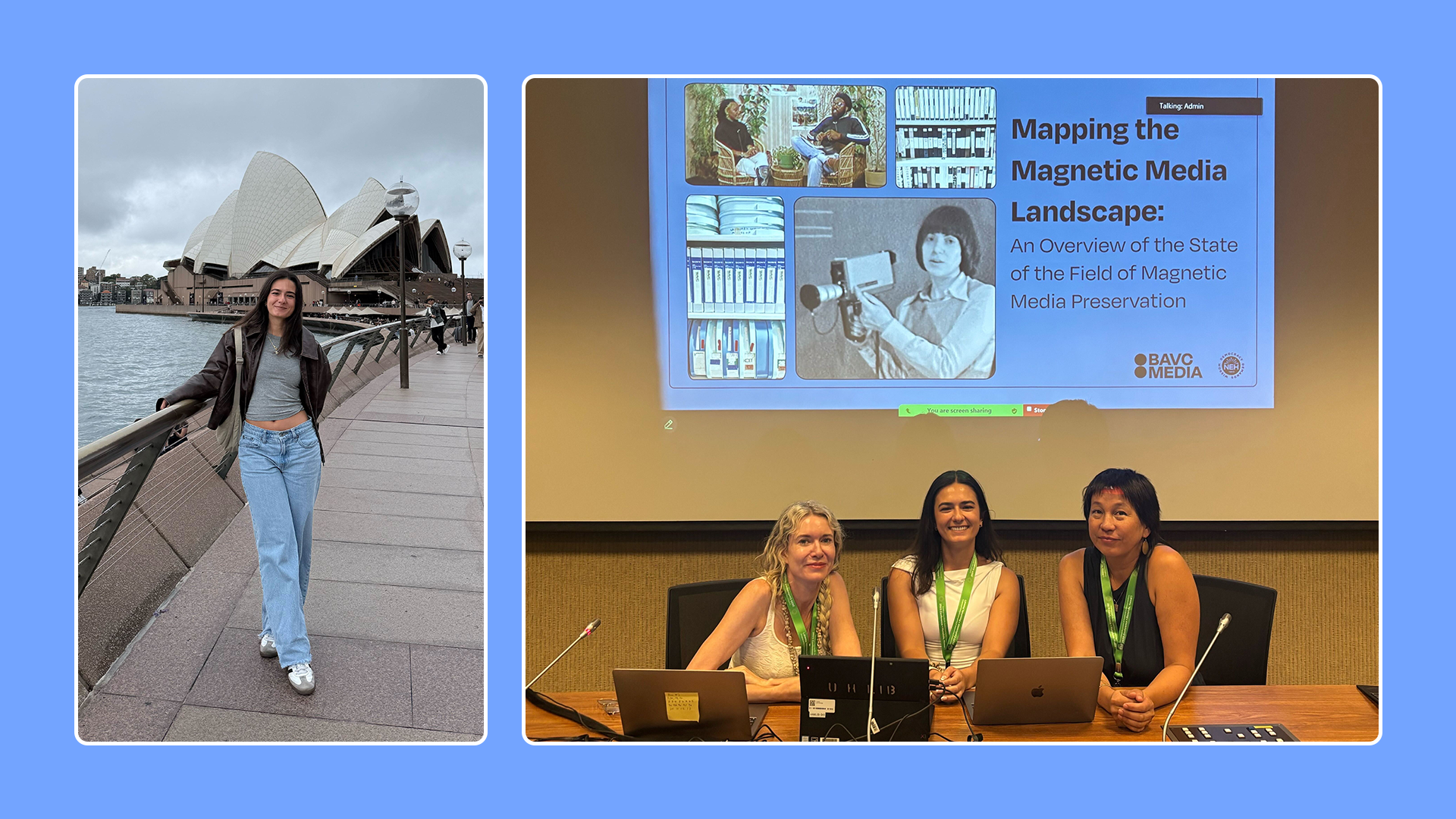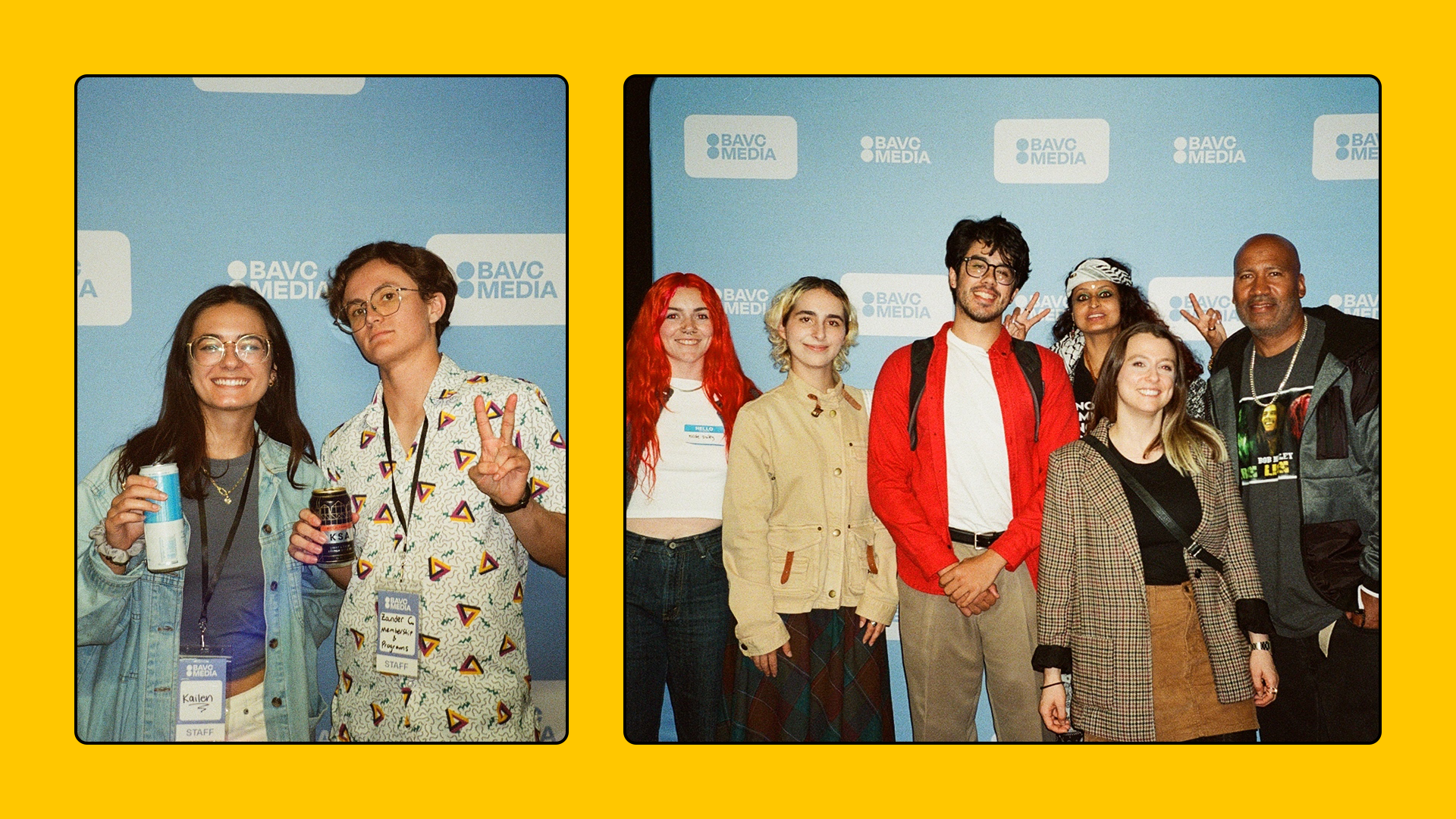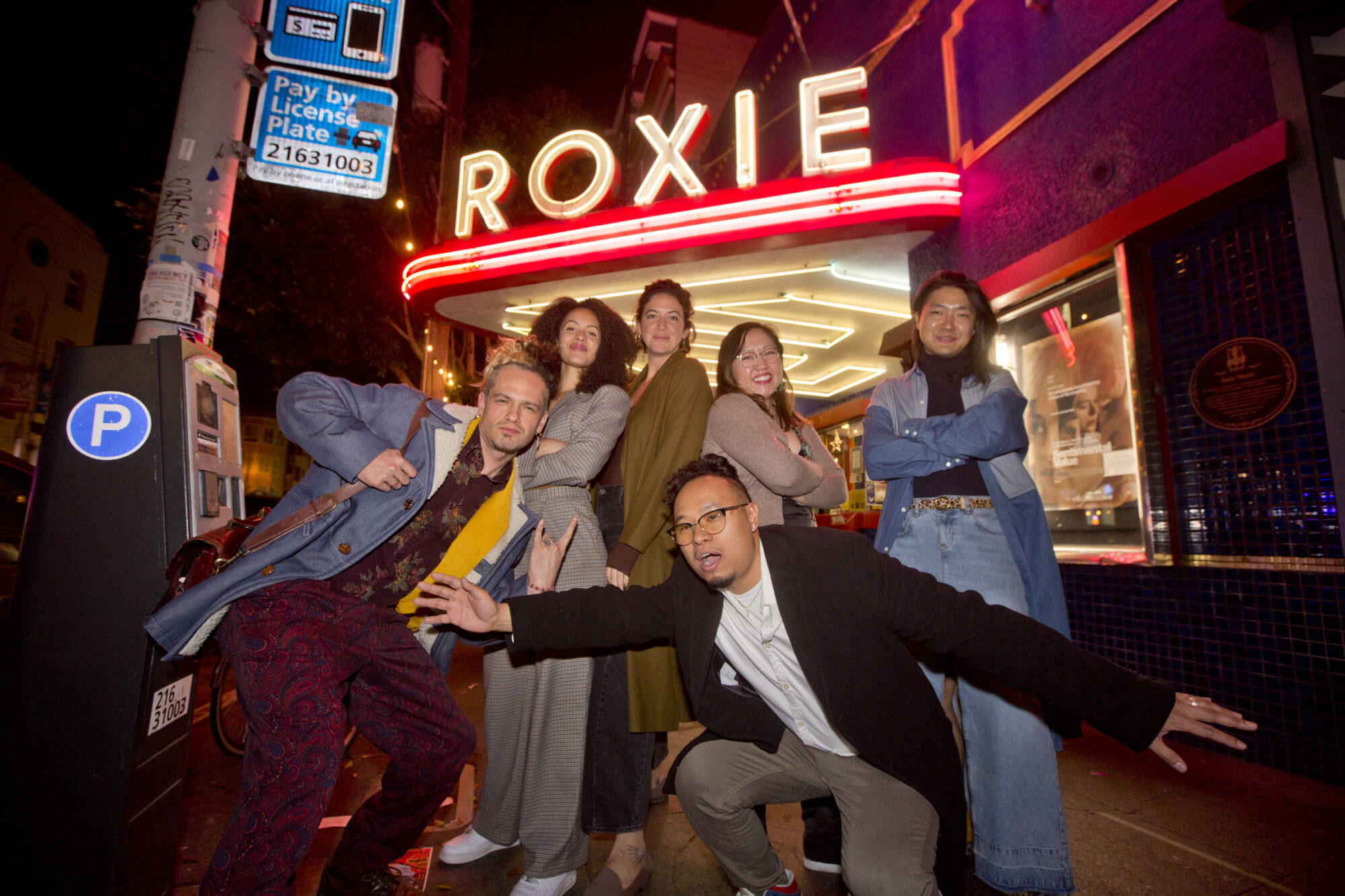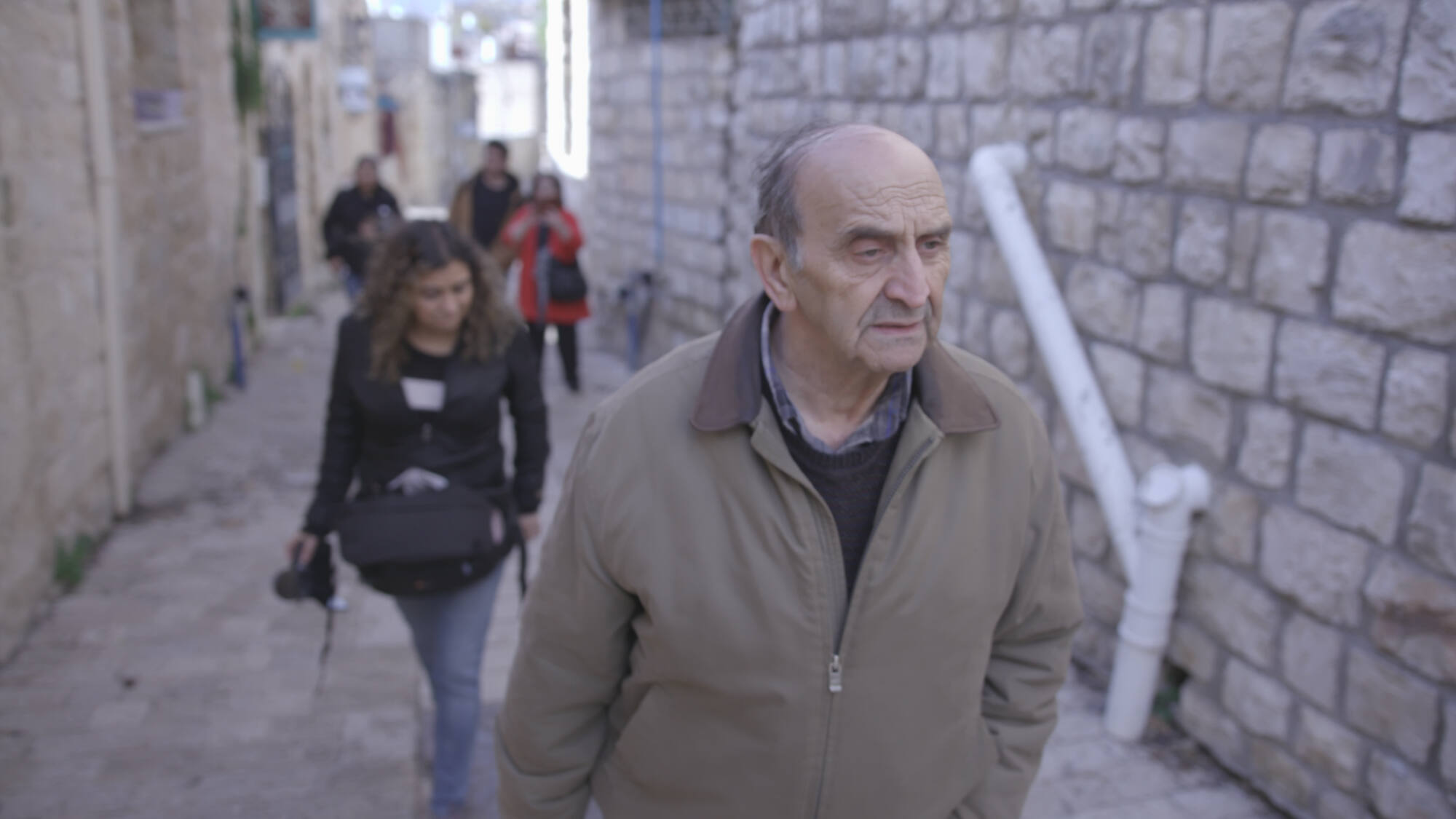Provisions: DIY Filmmaking with Daniel Freeman
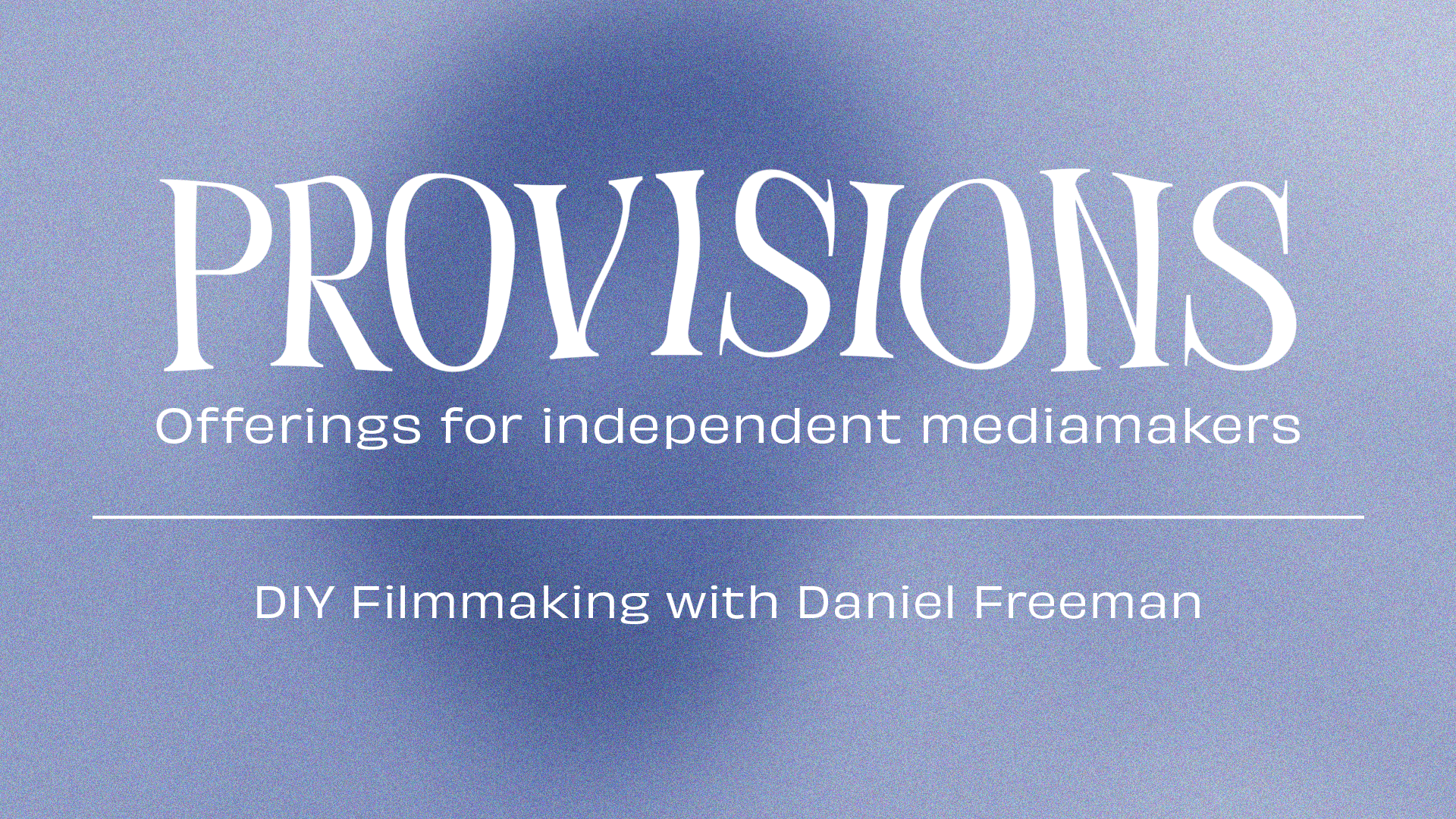
PROVISIONS is a series from BAVC Media, featuring interviews, advice, and insights into the creative process from our mediamaking community.
DIY, short for “Do it Yourself,” means a few things to Daniel Freeman, an independent filmmaker and experimental music composer. For him, DIY filmmaking is about taking the initiative to create without waiting for external approval, while still embracing a supportive community. We caught up with him about his filmmaking journey and his progression beyond the DIY approach.
Daniel was a SFFILM FilmHouse resident in 2019 and 2020. His film Teddy Out of Tune screened at the Mill Valley, Bushwick, and Maryland Film Festivals, among others. His follow-up short film, If You Hum at the Right Frequency, premiered at the San Francisco International Film Festival.
In 2023, he was awarded a Civic Arts grant by the city of Berkeley to create a documentary film, Home Frequencies in partnership with Dorothy Day House – a non-profit providing shelter, meals, and social services to the homeless community.
Also coming soon is Daniel’s short film Abstract Tendencies. An abstract painter loses his life’s work when his storage unit is auctioned off to an unknown buyer. Along the way, the artist reckons with his self-destructive patterns and family history as he attempts to reunite with his missing work.
This conversation has been edited for length and clarity.
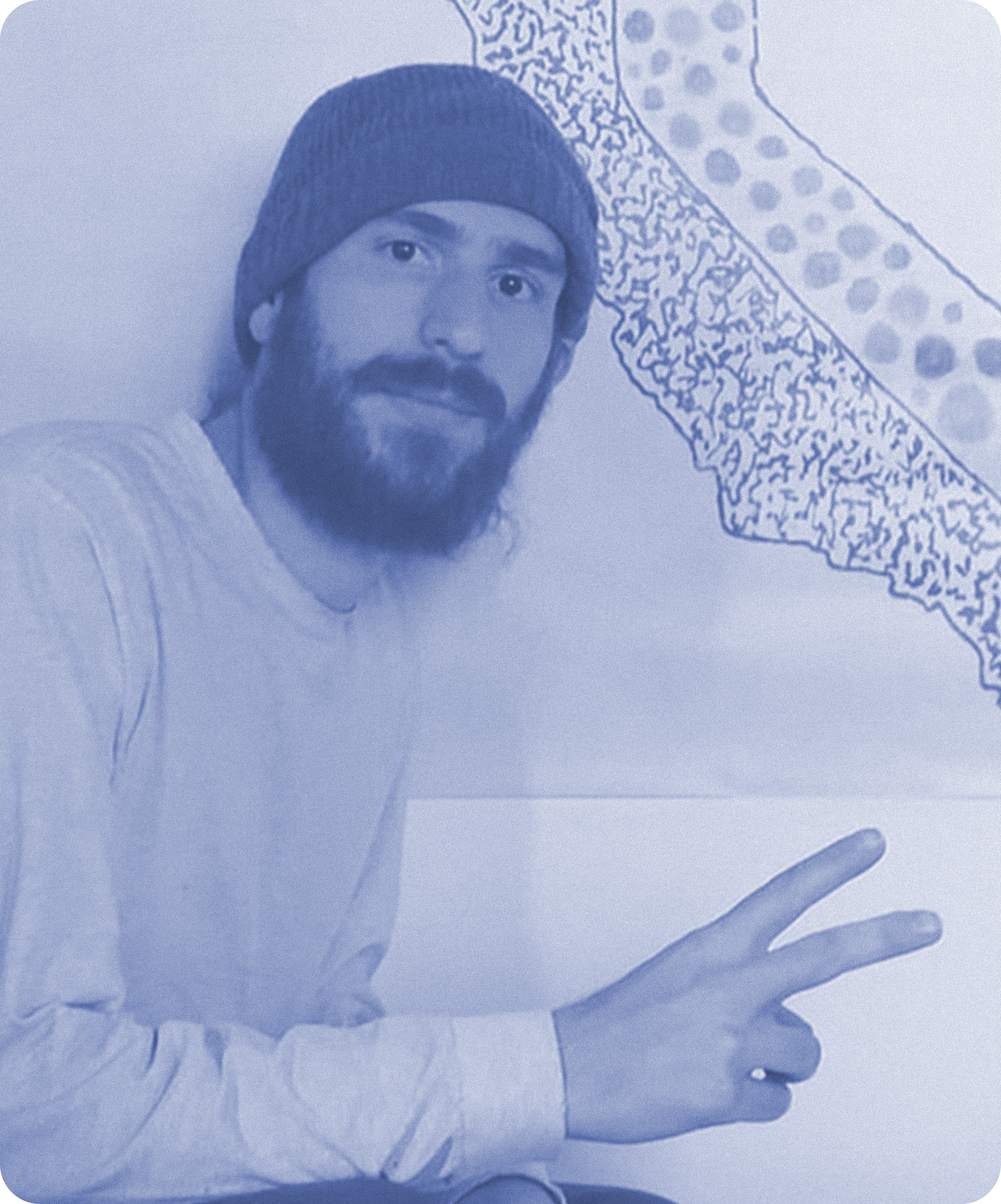 Tell me about your filmmaking background.
Tell me about your filmmaking background.
I didn’t study film or anything. I was just a regular guy who watched a lot of movies growing up and wanted to make them. But I didn’t really know anyone or I wasn’t really in a region or community that had a lot of filmmakers. I just always wanted to make stuff and I would record a lot of experimental music in my early twenties. Things with synthesizers and manipulating my voice and just kind of making stuff that I thought would fit well in a movie.
I was always daydreaming during my early career years about short film projects and different movies I could make. Then I started getting into animation and photography and actually started making some short film projects. I met an actor and I just kept coming up with small stories that were achievable and realistic and then made a feature film.
What does DIY filmmaking mean to you?
To me, it certainly doesn’t mean being completely alone, but it means not waiting for green lights or waiting for other people to be convinced until you make something. DIY doesn’t mean other people are whack and I’m gonna work by myself forever, but it does mean I’m not gonna let institutions or anything stop me from making projects. If anything DIY means embracing your immediate community, relationships, and friendships as opposed to looking for larger institutional support.
Do you have any advice for people to build their own filmmaking community and find collaborators?
It’s important to really embrace that early creativity stage when maybe you aren’t connected to a large community and just make things relentlessly and from the heart and hone your style and vision. Just put yourself out there and show up to art events and post your art. And even if it seems super small and insignificant at the moment little tiny personal art projects will lead to your bigger art projects.
If you just keep going, that will keep compounding and in five to 10 years, 10 projects later you’ll be in a spot that you really wanted to be at. So in the workshop, I talk about taking stock of our own lives and our own things in our everyday life, such as relationships or locations, or people.
And just building our stories around those things as opposed to things that aren’t already integrated into our daily life. If you kind of look at your life and take stock of it, those are the parameters for your storytelling. There are fewer barriers between you and making something if you’re already thinking in your own world.
You’ve spoken about art for the sake of making it. Can you talk a little bit about that?
A lot of my films are about artists and people that make art regardless of having an audience and, and despite having zero audience. I think that that’s just really beautiful, playing piano for trees or on a stage with nobody in the audience or maybe you’re a painter and you’ve made hundreds of paintings, but never sold one. I just really appreciate not giving up quality and making a lot of stuff no matter what, because that’s what naturally happens as opposed to really caring about the distribution or the acclaim on the backend because those are things that we don’t really get to decide for ourselves.
I just have a core belief that if you make something from your heart that you wanna make it’ll be really difficult to regret that later. As artists and in a really competitive field where there are so many images and other films and stories, just try to set yourself up to not have regrets and to have something to show for yourself.
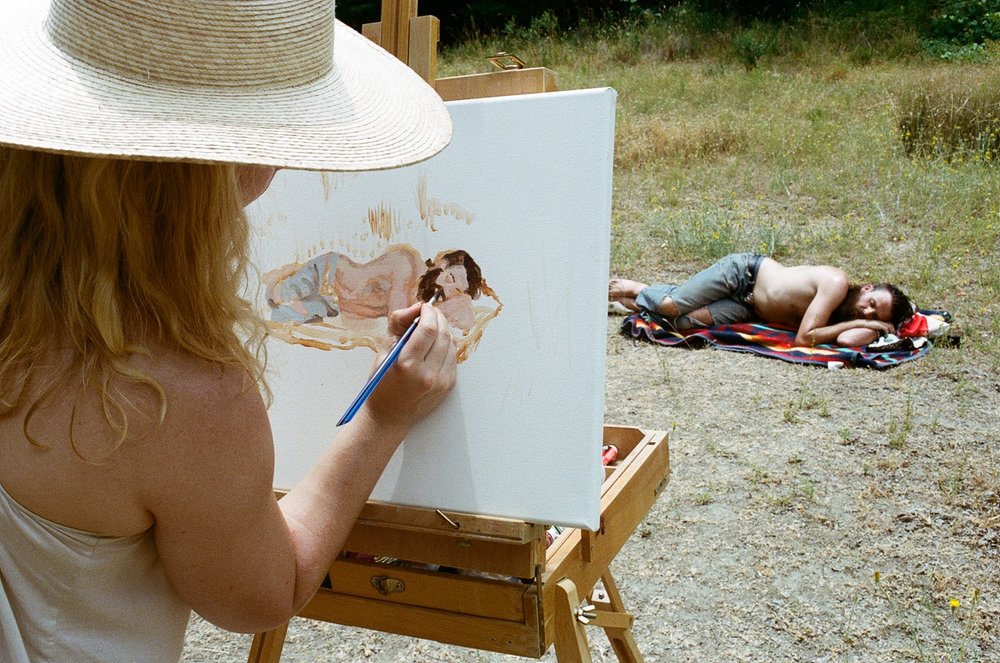
Teddy Out of Tune
In your work, you really emphasize character over plot. How do you build these super-rich characters that feel real?
A character study or even removing the person as a subject, like a location study or a light study or a color study, just really focusing on a component and a subject as, as needing, wanting to get to know that subject really deeply. And then having like feeling like when you watch a movie that you really got to know a person by the end of it. I think in the same way that building stories from our own lives we can build characters from our own lives and really assess the qualities within ourselves or within the people we love that we think are interesting, beautiful and cinematic.
I work with one actor, you know, in all my films basically and that’s Teddy. He’s a trained actor but everyone else I’ve made a film with is just a really close friend of mine or a stranger that is not an actor. And a lot of the time it’s just building their screen presence or their role in a film around who they are, what they’re good at, what I think is beautiful, and what they really care about. Building around passions that are real and skills and people and personalities. It makes a lot of choices for you during the story-building phase, which is nice cuz it moves fast. It’s authentic, and as a director, and if I’m running around solo, it’s nice to just be able to rely on people to be themselves as opposed to, ‘Hey, like, could you act differently?’ I want people to be themselves and like, part of being a filmmaker is you can capture your friends or your community members in this really cinematic light that you kind of see them as.
With your other subjects who aren’t actors, how do you find that line of not being extractive? How do you work with that and where is the line?
I don’t have that all figured out, I’ll be the first to admit. But I think it’s just a feeling and I think it’s about being super honest with people and what you’re trying to make and like asking people to be a part of something that would maybe cherish like the creative experience and the adventure. I think filmmaking is really beautiful cause people get excited about it and they like to be involved in projects, and it’s exciting if someone wants to make a movie with you.
I feel like when I ask people to make films with me, I try to structure it in a way where I’m not extracting too much emotion or time from their life and I try to be really intentional about planning productions, even as flexible as they are.
I don’t have that figured out, but it’s so instinctual and it’s another reason why I like to work with people that I’m already really close with because our whole relationship doesn’t necessarily hinge on the execution of this film cuz we’re, you know, we’re friends and there’s something bigger than the project and the work and it’s not really the same as typical labor or like film set sort of dynamics.
I’m really sensitive to that and I wanna always get better. I think when you keep it small, the stakes are lower and, and the ability for people to get crushed is lower as well.
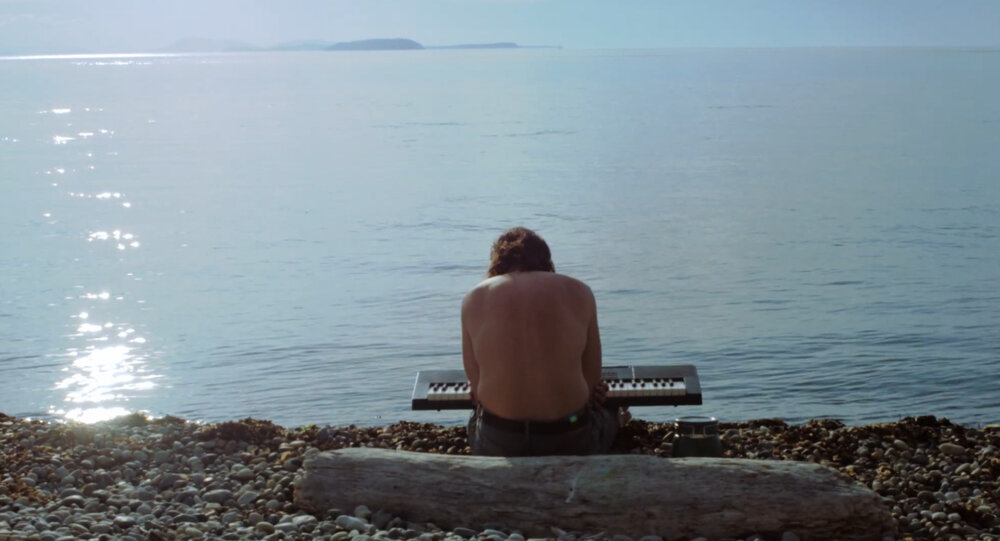
Teddy Out of Tune
I imagine on that scale too, and when you’re working with friends and people you already know, it’s more personal and you have relationships with them already.
I’m moving into a space like now in my career where that’s starting to get bigger and I don’t have personal relationships with all these people, especially when I’m getting hired to edit films that I had no part in the production and or if like some of the things I have lined up now.
But like, I think I was just very intentional about slowly moving into that space as a director of like telling people what to do, you know? And like I really wanted to give myself several years of practice in a gentler environment when it comes to directing others.
You have really beautiful scenic locations in your films. Were there any barriers whether that’s budget or privacy that you come up against when trying to film in these locations?
I feel like I really try to lean into like embracing barriers or like parameters as a positive. I set my stories in really private, almost abandoned places sometimes or the properties of people in my community. And that’s all intentional because location scouting is a massive part of my process. For me, it’s hard for me to direct or do development if I can’t really picture scenes or what’s gonna happen.
So it’s, it’s kind of like finding your stage and then being able to envision what happens on it.
Then also just having like super high confidence that you’ll be able to go to that place on a day and do what you need to do and, and not bother people and not be disrespectful like not have a bunch of distractions or it’s cuz it’s already hard enough being vulnerable and doing a shoot, but if there’s like a bunch of people walking around and all that.
What are the benefits of creative constraints and parameters?
I think that when someone is sitting down to write a story, especially a film project, it’s empowering if there are no constraints and if you could film ’em on like the moon of Saturn and you know, or in Times Square or something like that, but the possibilities are kind of endless. For me, my mind can start to race and whatnot. So I think like, you know, like there’s words like constraints, barriers or limitations, but I always use the word like parameter cuz it’s less of like a negative connotation I guess.
It’s not a negative thing, it’s just the reality and we need to accept that really quickly in the filmmaking process and like just have it be a hard rule that what’s only set scenes in places where we have access to. It’s so hard to make a film in this sort of scrappy DIY micro-budget way that embracing parameters of what’s possible is so helpful.
I’m just sensitive to streamlining and being effective with time because it’s important if you’re gonna do filmmaking to not waste your or other people’s time because you probably won’t even like making films with yourself, and other people certainly won’t like it if you waste their time.
You’ve had miscellaneous jobs at certain points when you were making films. How did you find creative motivation to work on your projects while balancing work?
I moved to California when I was 22 and the reality is I just didn’t have any friends so I worked 40 hours a week, but my social life wasn’t very full or anything. And I’m very comfortable staying at home with my wife chilling and like working on music at night or on the weekend, but I just got really into music. It was a thing that didn’t really feel like work or something I had to carve out. I feel like it’s really special when you can find things that you can work on for like 10 hours and you don’t even realize the time passes.
With all the little scrappy things I made from like 2014 to 2018 when I had full-time office jobs at UCSF and all these different random jobs I’ve had since moving to the Bay, I always felt like it was super, super important to me to be making these things and to be progressing.
And it wasn’t something that other people were keeping track of for me or even taking notice of it was just super imperative to my goals and my health and like my creativity to always be working on stuff and like being super present for your imagination and your creativity.
I’m not gonna sit here and promote the grind lifestyle, but there is no replacement for like sit your butt down and really making stuff. But like, it’s balanced out by living life and meeting people and being inspired and then obviously filming things. I would commute from Berkeley to San Francisco and I’d have to be at work at 8:00 AM every day and take the BART and all that and I would just be so in my feelings, just daydreaming about making art and being a filmmaker. It felt so far away during that time. I was like, damn, I could be doing office jobs forever and I could very well be doing office jobs again at some point. I was a huge daydreamer and always processing creative ideas even when I was at work and stuff. No one really was like, you’re definitely gonna do it, just keep working hard. I didn’t really have that reassurance, but it just felt like I didn’t have a choice.
Do you have any advice for people who want to eventually move beyond DIY?
Put yourself out there, share your work, and get excited about your work, but also get excited about other people’s work and find opportunities to keep the momentum up from your smaller projects. Slowly incorporate other creatives into your stuff, slowly build friendships, and be present for them.
Understand that pretty much all case studies of successful filmmakers oftentimes had a multi-decade career arc and it’s so easy to get impatient with filmmaking. Like when I was 22 on the BART as an administrative assistant the reality is I wasn’t qualified at that point or skilled enough or have the vision or the perspective to be doing these bigger things. It’s like we do have to live our lives and, gain our wisdom, hone our skills and our voice, and hopefully know that in 10 years from now, like we’ll be in a better spot because we worked hard and, and tried. And just really embrace that long-term vision, that long-term vision and tell stories that we’re excited about. I just think that people can tell if you’re doing stuff that you actually care about versus like just trying to be successful, you know?
Can you speak a little bit more about sharing your work?
At the beginning of making really tiny stuff, I wasn’t submitting to festivals and stuff, but sending to my immediate network of friends and people I looked up to as creatives that I was connected to in some way or just sharing on social media. As that started to progress over the years, I gained some confidence to submit to some regional experimental scrappier film festivals, and then I thought a bigger project had a shot at some of these more established film festivals. But I’ve definitely gone the film festival route as of late. I’m no distribution expert, but having my films in nicer film festivals like Mill Valley and San Francisco International has definitely led to me getting hired to edit other films and whatnot.
I think it’s a really positive thing to put yourself out there. But I also think it’s super important to be realistic and sensitive about what is a successful project. When I was doing these scrappy little experimental films when I was young a successful project was just making it and it doesn’t really need to receive anything other than building confidence or adding momentum. When I make something like a Teddy Out of Tune, it’s like I actually really wasn’t interested in just getting any distribution whatsoever.
I wanted to keep it pretty sacred and it got into these festivals that I was really proud of, and it feels like a successful project. Especially given the budget and the resources and experiences that went into it, it’s like redefining what success is for each individual project and being really honest with ourselves and protective of our expectations and our feelings I think is super important. My mindset is I’d rather make 10 films than one perfect film that like won every award just because, yeah, I just think that’s more realistic and more fun and just me being honest with myself about how to have a good life.
You can learn more about Daniel’s films and other projects on his website or follow him on Instagram.
